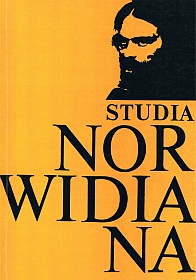Language - Interpretation - Translation. The case of Rolf Fieguth’s German translation of Vade-mecum
Abstract
The article presents and evaluates the relations between interpretation and translation in the case of Rolf Fieguth’s translation of Norwid’s Vade-mecum into German. Fieguth ’s translation is purposely „report-like” ; it aims at „the closest approximation possible to the original [...] in the sound pattern of words, sentence construction, semantic ambiguity [...] and mixture of styles” . Yet this „report-like” translation does not render Norwid’s poems any simpler or more modern in form. Nor will it make it any easier for the contemporary reader to penetrate the complex poetry of the author of the Vade-mecum. The interpretation of Norwid’s translated work as a whole is not free from weaknesses, either; for example, there is in sufficient stress on the opposition between the sacred and absence of the sacred. This interpretational shortcoming reflects on the quality of the translation itself. Another cause of translational imperfections is the „flattening” or even total elimination of the opposition between the dynamic and the static in the form of the Vade-mecum; this may to some extent be due to the properties of the German language system. Norwid’s texts as translated by Fieguth are much more static than the original. The thesis that dynamism plays an important part in the language of the Vade-mecum has not been generally known; it is the present w riter’s own idea, which emerged as she was comparing Norwid’s original with the German translation.
Copyright (c) 1993 Studia Norwidiana

This work is licensed under a Creative Commons Attribution-NonCommercial-NoDerivatives 4.0 International License.





